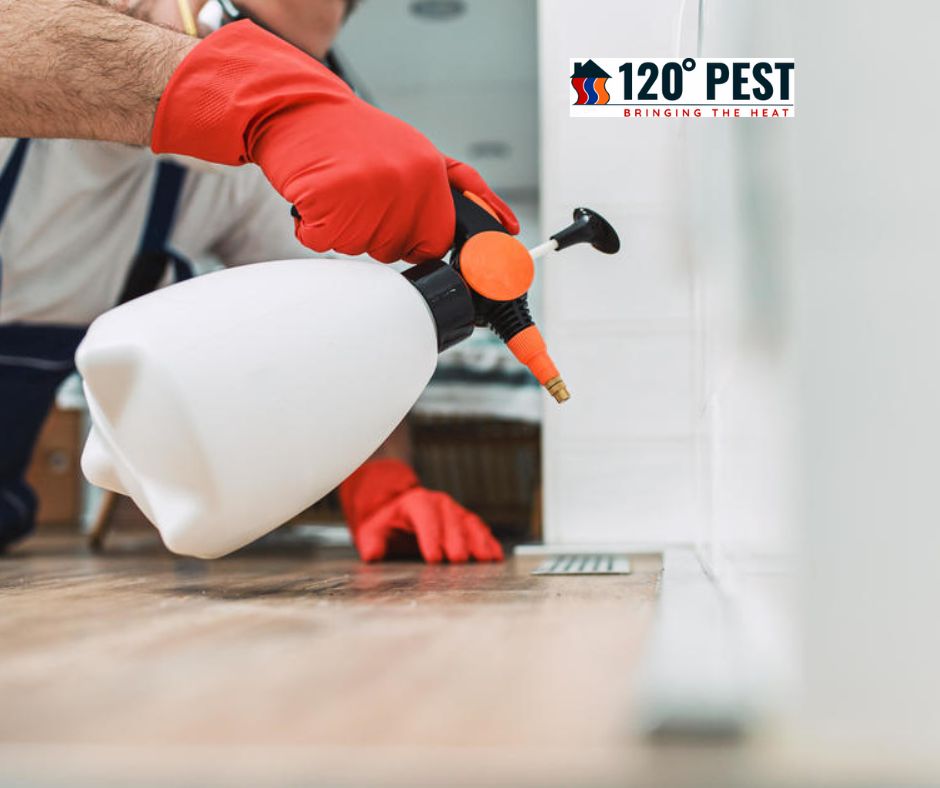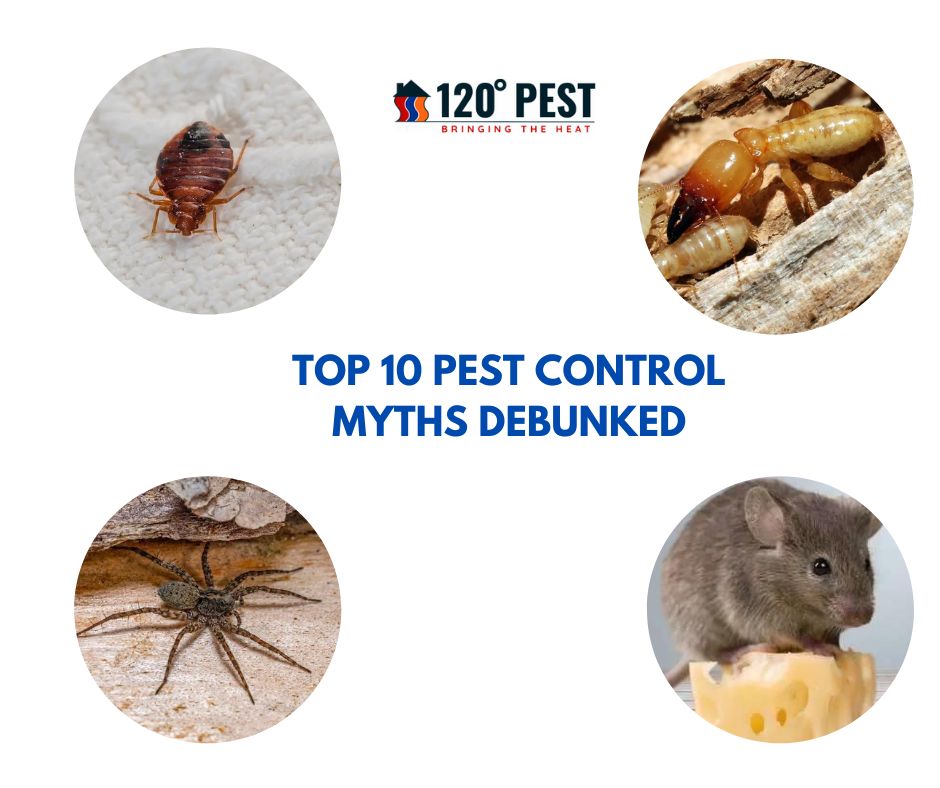Pest control is a crucial aspect of maintaining a healthy and comfortable living environment. However, there are numerous myths and misconceptions surrounding pest control practices that can often lead to ineffective or even harmful strategies. In this article, we’ll debunk the top 10 pest control myths to help you make informed decisions and effectively manage pest infestations.
Myth: Ultrasonic Repellents are Effective Against Pests
One of the most prevalent myths is that ultrasonic repellents, which emit high-frequency sound waves, can effectively deter pests such as rodents and insects. However, numerous studies have shown that these devices have limited effectiveness in repelling pests. In fact, pests can quickly adapt to the sound frequencies, rendering the devices ineffective over time.
Myth: DIY Pest Control Methods Are Always Effective
While DIY pest control methods may provide temporary relief, they often fail to address the root cause of the infestation. Moreover, incorrect application of pesticides or other control methods can pose health risks to humans and pets. Consulting with a professional pest control service is often the most reliable and safest option for long-term pest management.
Myth: Cats Are Effective at Controlling Rodent Populations
While cats are natural hunters and may catch a few rodents, they are not a reliable solution for controlling large or persistent rodent infestations. In many cases, rodents can quickly adapt to the presence of cats and avoid areas where they roam. Additionally, relying solely on cats for pest control neglects the underlying factors contributing to the infestation.
Myth: Keeping a Clean House Will Prevent Pest Infestations
While maintaining cleanliness is essential for preventing pest infestations, it is not always sufficient on its own. Pests such as cockroaches and rodents can thrive in clean environments, especially if they have access to food, water, and shelter. Implementing proactive pest control measures, such as sealing entry points and eliminating sources of attraction, is crucial for effective pest management.
Myth: Bed Bugs Only Infest Dirty Homes
Contrary to popular belief, bed bugs are not indicative of poor hygiene or cleanliness. These resilient pests can infest any environment, including clean and upscale accommodations. Bed bugs are skilled hitchhikers and can be introduced to a property through infested luggage, clothing, or furniture. Prompt identification and treatment are essential for preventing bed bug infestations from spreading.
Myth: Pesticides Are Always the Best Solution for Pest Control
While pesticides can be effective in eliminating pests, they should be used judiciously and as part of an integrated pest management approach. Over-reliance on pesticides can lead to environmental contamination, harm beneficial insects, and contribute to pesticide resistance among target pests. Additionally, some pests may not be susceptible to certain pesticides, necessitating alternative control methods.
Myth: DIY Traps Are Sufficient for Rodent Control
While DIY traps can capture individual rodents, they may not effectively address an entire rodent population. Moreover, improperly placed traps can result in injury to non-target animals or unintended consequences. Professional pest control services can assess the extent of the infestation and implement comprehensive rodent control strategies tailored to your specific needs.
Myth: Natural Remedies Are Always Safe and Effective
While natural remedies may seem appealing for pest control, not all are safe or effective. Some natural substances can be toxic to humans and pets if not used correctly. Additionally, the efficacy of natural remedies can vary depending on the pest species and infestation severity. Consulting with a pest control professional can help determine the most appropriate and safe course of action.
Myth: Pest Control Is Only Necessary When There’s an Infestation
Waiting until a pest infestation becomes severe before seeking professional help can lead to more extensive damage and higher treatment costs. Implementing preventive measures, such as regular inspections and proactive pest management practices, can help identify and address potential pest issues before they escalate. Early intervention is key to minimizing the impact of pest infestations.
Myth: DIY Pest Control Is Always Cheaper Than Professional Services

While DIY pest control methods may initially seem more cost-effective, they can end up costing more in the long run if the infestation persists or worsens. Professional pest control services have the expertise, experience, and resources to effectively manage pest infestations and prevent future recurrence. Additionally, professional services often provide warranties and guarantees for their work, offering peace of mind to homeowners.
Conclusion:
Debunking common pest control myths is essential for implementing effective and sustainable pest management strategies. By understanding the limitations of popular misconceptions and adopting evidence-based practices, homeowners can safeguard their properties against pest infestations and promote a healthy living environment for themselves and their families. Consulting with a professional pest control service can provide tailored solutions and expert guidance for addressing pest issues effectively. If you’re in need of professional pest control services, contact us at 120 Pest Control for reliable assistance.
FAQs
Are ultrasonic repellents effective against pests?
Despite their popularity, ultrasonic repellents have limited effectiveness against pests like rodents and insects. Studies have shown that pests can adapt to the sound frequencies emitted by these devices, rendering them ineffective over time.
Are DIY pest control methods always effective?
DIY pest control methods may offer temporary relief, but they often fail to address the root cause of infestations. Incorrect application of pesticides or other methods can also pose health risks. Consulting with a professional pest control service is often the safest and most reliable option for long-term management.
Are cats effective at controlling rodent populations?
While cats are natural hunters, they are not a reliable solution for controlling large or persistent rodent infestations. Rodents can quickly adapt to the presence of cats, and relying solely on them neglects underlying factors contributing to infestations.
Will keeping a clean house prevent pest infestations?
While cleanliness is crucial, it’s not always enough to prevent pest infestations. Pests like cockroaches and rodents can thrive in clean environments if they have access to food, water, and shelter. Implementing proactive pest control measures is essential for effective management.
Do bed bugs only infest dirty homes?
Bed bugs are not indicative of poor hygiene. They can infest any environment, including clean accommodations. They are adept hitchhikers and can be introduced through infested luggage, clothing, or furniture. Prompt identification and treatment are essential for prevention.
Are pesticides always the best solution for pest control?
While pesticides can be effective, they should be used judiciously as part of an integrated pest management approach. Overuse can lead to environmental contamination, harm beneficial insects, and contribute to pesticide resistance among pests.
Are DIY traps sufficient for rodent control?
DIY traps may capture individual rodents but may not address entire populations. Improperly placed traps can result in unintended consequences. Professional pest control services can assess infestations and implement comprehensive strategies tailored to specific needs.
Are natural remedies always safe and effective for pest control?
Not all natural remedies are safe or effective. Some can be toxic if not used correctly, and efficacy can vary depending on the pest species and severity of infestation. Consulting with a professional can help determine the most appropriate course of action.
Is pest control only necessary during infestations?
Waiting until an infestation becomes severe can lead to more extensive damage and higher costs. Implementing preventive measures, such as regular inspections and proactive management practices, can help identify and address potential issues before they escalate.
Is DIY pest control always cheaper than professional services?
While DIY methods may seem more cost-effective initially, they can end up costing more if infestations persist or worsen. Professional services have the expertise, experience, and resources to effectively manage infestations and prevent recurrence, often providing warranties and guarantees for their work.




